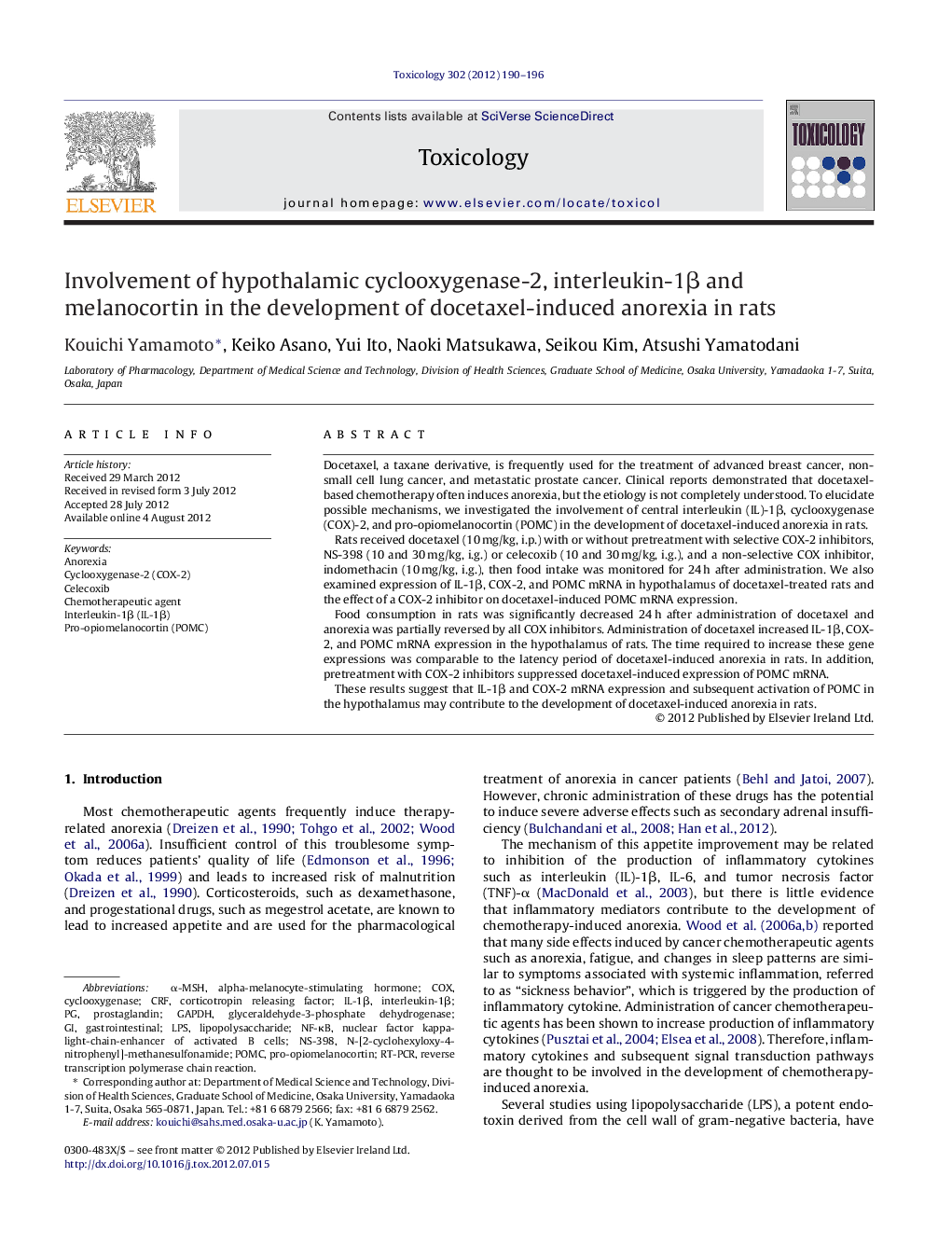| Article ID | Journal | Published Year | Pages | File Type |
|---|---|---|---|---|
| 2595716 | Toxicology | 2012 | 7 Pages |
Docetaxel, a taxane derivative, is frequently used for the treatment of advanced breast cancer, non-small cell lung cancer, and metastatic prostate cancer. Clinical reports demonstrated that docetaxel-based chemotherapy often induces anorexia, but the etiology is not completely understood. To elucidate possible mechanisms, we investigated the involvement of central interleukin (IL)-1β, cyclooxygenase (COX)-2, and pro-opiomelanocortin (POMC) in the development of docetaxel-induced anorexia in rats.Rats received docetaxel (10 mg/kg, i.p.) with or without pretreatment with selective COX-2 inhibitors, NS-398 (10 and 30 mg/kg, i.g.) or celecoxib (10 and 30 mg/kg, i.g.), and a non-selective COX inhibitor, indomethacin (10 mg/kg, i.g.), then food intake was monitored for 24 h after administration. We also examined expression of IL-1β, COX-2, and POMC mRNA in hypothalamus of docetaxel-treated rats and the effect of a COX-2 inhibitor on docetaxel-induced POMC mRNA expression.Food consumption in rats was significantly decreased 24 h after administration of docetaxel and anorexia was partially reversed by all COX inhibitors. Administration of docetaxel increased IL-1β, COX-2, and POMC mRNA expression in the hypothalamus of rats. The time required to increase these gene expressions was comparable to the latency period of docetaxel-induced anorexia in rats. In addition, pretreatment with COX-2 inhibitors suppressed docetaxel-induced expression of POMC mRNA.These results suggest that IL-1β and COX-2 mRNA expression and subsequent activation of POMC in the hypothalamus may contribute to the development of docetaxel-induced anorexia in rats.
